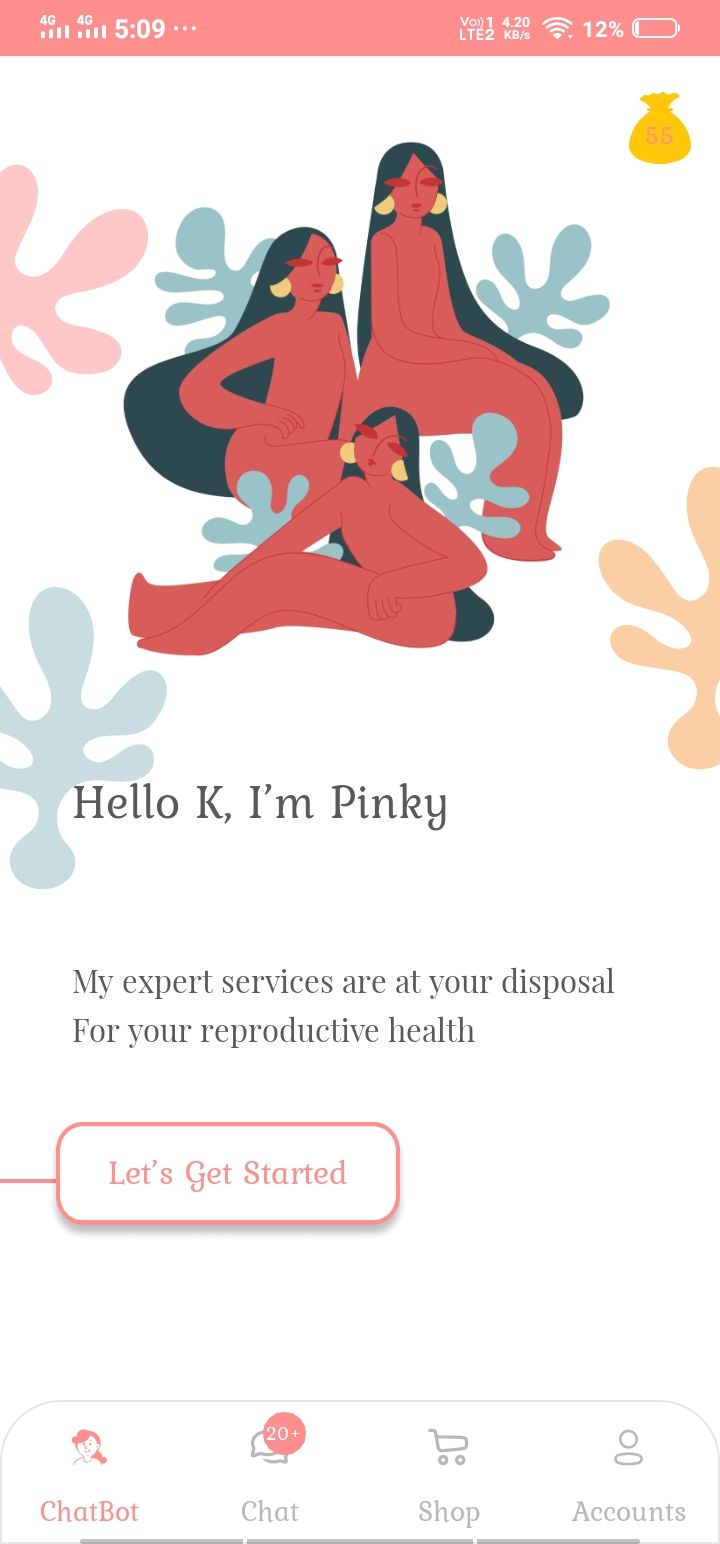You can prevent UTI through good hygiene and lifestyle choices. Drinking plenty of water and avoiding certain products may also be beneficial. Healthy bathroom habits, peeing before and after sex, and taking probiotics are all-natural remedies. Antibiotics or a different type of birth control are used as medical methods. Estrogen therapy, which rebalances vaginal bacteria, may benefit both perimenopausal and postmenopausal women. Consult your doctor regarding the best ways to avoid a UTI. You can find several options and figure out what works best for you. 1
What are the symptoms of a UTI?
Bacteria in urine symptoms include:
- A strong and constant urge to pee
- Burning while urinating
- Peeing only small amounts of urine
- Cloudy urine
- Bloody urine (red, pink, or cola-coloured)
- Smelly urine
- Pelvic pain (in women)
If you observe any symptoms of urinary tract infection, please see a doctor. They’ll likely perform a urine test. If you have bacteria in urine, your doctor will most likely prescribe antibiotics.
What are the main causes of UTI?
A urinary tract infection is quite common. Bacteria from the vaginal, genital, and anal areas can enter the urethra and move to the bladder, causing an infection. The bacteria from your partner’s genitals, anus, fingers, or sex toys might enter into your urethra while having sexual intercourse. Furthermore, chlamydia, gonorrhea, and other organisms can result in UTIs.
Although UTIs are not transmitted from person to person, like STIs, having sex can cause or worsen UTIs. But you do not need to have sex to have a UTI. There are different types of urinary tract infections, and a UTI can be caused by anything that brings bacteria into contact with your urethra.
What is the main cause of UTI in females?
Women are at a higher risk of getting a UTI, and UTIs are more common in women than in men. So, what are the causes of UTI in women? Why do women get UTIs frequently when compared to men? This is because women have a shorter urethra — the tube that transports urine from the bladder, making it easier for bacteria to enter the urethra and bladder. In addition, a woman’s urethral entrance is closer to the anus, which contains most of the UTI-causing E.coli bacteria.
What are the frequent UTI causes?
UTIs are frequent in women. Many women will have more than one UTI throughout their lifetime. Women are particularly at risk due to the following risk factors –
- The female anatomy – A woman has a shorter urethra than men. Bacteria must travel less distance to reach the bladder due to this.
- Sexual activity – Sexual activity is associated with an increase in UTIs. Having a new sexual partner also increases the risk of getting a UTI.
- Some birth control methods – UTIs may be increased by using diaphragms for birth control. Employing spermicidal drugs can potentially raise the risk.
- Menopause – A decrease in circulating estrogen after menopause produces changes in the urinary tract. The changes may raise the risk of UTIs.
Other risk factors and effects of urine infection include – urinary tract problems, blockages in the urinary tract, having a suppressed immune system and using a catheter, if you have a recent urinary procedure. 2
How can I naturally prevent a UTI?
You can’t avoid a UTI but try to minimise your chances of developing one. Here are the precautions for urine infection that may help you avoid a UTI.
- Wipe from front to back – Since the rectum is a main source of E.coli, it’s best to clean your genitals from front to back after using the restroom. This method reduces the chance of E.coli spreading from the anus to the urethra. It is more important if you have diarrhea. Diarrhea can make it difficult to control bowel movements, increasing the risk of E. coli spreading to the urethra.
- Stay hydrated – Drink plenty of water throughout the course of your day. This causes you to pee more frequently, and flush the bacteria out of your urinary tract. Water is the best option. If you find it difficult to drink water, you can increase your fluid intake with sparkling water, decaffeinated herbal tea, milk, or fruit and vegetable smoothies. Limit or avoid alcohol and caffeinated beverages, which can irritate the bladder.
- Urinate frequently – Avoid holding your urine because this can make it easier for bacteria to grow. Do not go more than 3 to 4 hours without peeing, and empty your bladder completely each time. It is more important if you are pregnant, as pregnancy increases the risk of UTI. Holding your pee can increase the risk even more.
- Pee before and after sex – If you are sexually active, it raises the likelihood of a UTI, particularly in women. This is because of the ease with which bacteria can enter the urethra during sex. Pee immediately before and after sex to reduce your risk of developing a UTI. The goal is to remove bacteria that may cause UTIs. You should always wash your genital area gently before having sex. It can help keep the area clean and minimise the spread of bacteria to your urethra.
- Avoid irritating feminine products – The vagina naturally contains around 50 different microbes, many of which are Lactobacilli, a type of bacteria. These bacteria contribute to vaginal health and pH balance. Scented feminine products can upset this delicate balance, allowing harmful bacteria to proliferate. It can lead to urinary tract infections, bacterial vaginosis, and yeast infections.
- Explore birth control options – Certain birth control methods may stimulate the growth of harmful bacteria. It includes non-lubricated condoms, diaphragm and spermicides. Consult your doctor if you believe your birth control is causing UTIs. They can walk you through the many possibilities and assist you in determining the best alternative way for you.
- Consider probiotics – Probiotics are living microorganisms that promote the growth of beneficial gut bacteria. They may also aid in the development of beneficial bacteria in the urinary tract. This may help keep you from having a UTI. Lactobacillus strains have been linked to fewer UTIs in general. You can take probiotics in many ways to improve the health of your urinary tract. 3
Complications of a UTI:
Lower urinary tract infections rarely cause problems when treated early and effectively. But, if left untreated, UTIs can create severe health concerns. UTI complications may include:
- You have recurrent infections when you have two or more UTIs in six months or three or more in a year. Women are especially susceptible to recurrent infections.
- You can have permanent kidney damage due to an untreated UTI.
- Deliver a baby with low birth weight or a premature infant if you get a UTI during pregnancy.
- Men have a narrowed urethra due to repeated urethral infections.
- Sepsis could be a fatal complication of an infection. It is especially true if the infection spreads up the urinary tract to the kidneys.4
How to heal a UTI?
If you have UTIs that don’t respond well to treatment or have frequent urine infection, your doctor may advise you to take a small daily dose of oral antibiotics. It can help prevent UTIs by suppressing harmful bacteria. You’ll almost certainly need to take antibiotics after sex or when you first notice UTI symptoms. The disadvantage is that extended antibiotic use can result in antibiotic resistance. Your doctor can decide if this is the best prevention method for you.
How does a UTI feel at first?
You might be feeling generally unwell, achy and tired and a need to pee more often than usual and pain or discomfort when peeing. There is a sudden urge to pee, and you may feel as though you’re unable to empty your bladder fully. You will also feel pain in your lower tummy and experience the other common bacteria in urine symptoms.
How long can a UTI last?
UTIs are unpleasant and uncomfortable, but they usually go away after a few days and can be treated with antibiotics. If you do not use a prescription antibiotic for treating a UTI, your infection will likely last longer than usual. In general, if you have UTI symptoms that last more than two to three days, you should consult a doctor. A minor bladder infection in the lower urinary tract could progress to your kidneys if left untreated, putting you at risk for organ damage and severe blood infections.
Can I cure my UTI naturally?
Some of the UTI precautions include – resting, drinking plenty of water, taking dietary supplements, and giving the infection time to heal will all help you get rid of a UTI naturally. According to 2017 research, around 25% and 42% of UTIs cure naturally without antibiotics. But, “wait and see” is not an option here. Untreated UTIs can lead to potentially fatal complications such as sepsis.
What can I take daily to prevent UTI?
Simple changes like drinking more water, wiping from front to back, and peeing right after sex will help you avoid a urinary tract infection (UTI). People with frequent UTIs can prevent UTIs by taking antibiotics after sex. Nutritional supplements, such as cranberry products or probiotics, may aid in the urinary tract infection prevention.
Can you prevent a UTI by peeing?
When you are experiencing a UTI, peeing frequently will help you avoid worsening an infection. It occurs because urine puts pressure on the bacteria. The longer you hold urine, the more bacteria accumulate in your system. If the need comes, use the restroom as soon as possible. 3
What fruits are best for UTI?
Cranberries are a common home remedy for UTI prevention. The fruit contains proanthocyanidins, which may prevent E. coli from adhering to urinary tract tissues. It is also suggested that vitamin C in cranberries may enhance urine acidity, limiting the overgrowth of harmful bacteria.
Results from scientific research are contradictory. Some studies have discovered that cranberry extract reduces the frequency of UTIs, whereas others have not. Since it is unclear whether cranberries can prevent UTIs, it is a low-risk treatment. If you must consume cranberries, choose unsweetened, pure cranberry juice over sugary ones. You can also eat them fresh or frozen.
How can I test for UTI at home?
Unfortunately, you will have to consult a gynaecologist if you have a UTI. Hence, it’s necessary to get health education for UTI. Are you looking for an inexpensive consultation? Pinky Promise app ensures accessible UTI testing and expert consultation from the comfort of your home at 59/- only. 5 6





